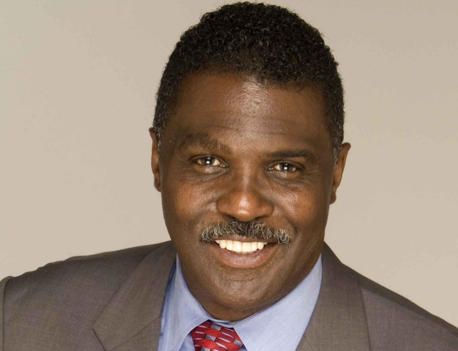By Glenn Ellis
If you don’t have a good understanding of how hot weather can affect your health, then this summer might not be as pleasant as you would like it to be.
When the weather’s hot, your body works overtime trying to keep cool. Excess heat escapes through sweating, exhalation of warmed air, and increased blood flow to the skin. But hot weather can overwhelm those mechanisms, leading to a wide array of uncomfortable symptoms. If nothing is done to remedy these symptoms, serious harm even life-threatening problems can occur.
The human body consists of nearly 70 percent water; brain tissue is said to consist of about 85 percent water. This is why drinking six to eight glasses of water a day helps our body function efficiently. It is estimated that if we lost just one-tenth of the water within our body, we would not be able to stand, let alone walk.
The body loses fluids in a variety of ways: when urinating; when you vomit or have diarrhea; when sweating; and from the lungs when you breathe.
Normally, the body cools itself by sweating. If temperatures and humidity are extremely high, however, sweating is not effective in maintaining the body’s normal temperature. When this happens, blood chemistry can change and internal organs–including the brain and kidneys–can be damaged.
The circulation in your body helps to dissipate heat, but when the air temperature is higher than 90°F, cooling by sweat is the only way to prevent the body from overheating. Cooling though evaporation, or sweating, is only possible when your body has been provided with enough fluids. Failing to properly hydrate can result in dizziness, fainting, digestive problems and even death.
Dehydration can quickly lead to fatal collapse of the circulatory system because the heart and temperature control systems cannot dissipate the core heat of your body. Your body is a little furnace- pumping blood; breathing and digestive activities all generate heat deep in the core of your body. If you are working in the heat, the activity of the muscles generates even more energy. If you haven’t consumed enough fluids to sweat and cool itself, your body core temperature will rise and begin to destroy tissues and organs. Although the body gives fair warning of the problem, many people fail to react to the warning signs.
As your temperature starts to rise, your hot blood burns your muscles and your muscles hurt and burn. If you continue to exert yourself, your circulation is compromised when you become extremely short of breath and no matter how hard you breathe, you can’t catch your breath. If you ignore this sign, your temperature rises above 106 and your brain is damaged, you get a headache, see spots in front of your eyes, hear ringing in your ears, feel dizzy and pass out.
You cannot depend on thirst to tell you when you are dehydrated because you won’t feel thirsty until you have lost between two and four pounds of fluid and by then, it is too late to catch up on your fluid deficit.
We all hear the phrase, “You should drink plenty of fluids in hot weather. “Plenty of fluids” means at least one and a half to two quarts of fluids daily. This can be water, fruit juice, or fruit-flavored or carbonated drinks. Since aging can cause a decreased thirst sensation, elderly persons should drink water, fruit juices or other fruit drinks at regular intervals during the day, even if they do not feel thirsty. Avoid alcoholic beverages and those containing caffeine. Salt tablets are not substitutes for fluids.
During hot weather, you will need to drink more liquid than your thirst indicates. Even if you remain indoors and limit your activity, your body still needs to replace lost fluids, salt and minerals. Make an extra effort to drink a minimum of six to eight 8 oz. glasses of cool fluids daily. During heavy exercise in a hot environment, drink two to four glasses of cool fluids each hour. Parents should be sure young children get sufficient fluids. If you are on a special fluid-restricted diet or if you take diuretics, ask your physician about fluid intake during hot weather.
Heat disorders include sunburn, heat cramps, heat exhaustion and heat stroke. Children are most susceptible to dehydration; the elderly are most likely to suffer from heat stroke. Keep in mind that many people with health problems should be extra cautious about the heat.
People with diabetes often lack the knowledge to effectively manage their diabetes in hot weather.
People with diabetes have limited ability to sweat and are therefore are at an increased risk for heat-related issues, including dehydration, according to the researchers. It is important to take precaution because insulin and oral medications may lose their effectiveness at higher temperatures.
Hot weather also increases dangers for people who must take medicine for high blood pressure, poor blood flow, nervousness or depression.
Drink your water!
Remember, I’m not a doctor. I just sound like one.
Take good care of yourself and live the best life possible!
The information included in this column is for educational purposes only. It is not intended nor implied to be a substitute for professional medical advice. The reader should always consult his or her healthcare provider to determine the appropriateness of the information for their own situation or if they have any questions regarding a medical condition or treatment plan.
Glenn Ellis, is a Health Advocacy Communications Specialist. He is the author of Which Doctor?, and Information is the Best Medicine. For more good health information, visit: www.glennellis.com


